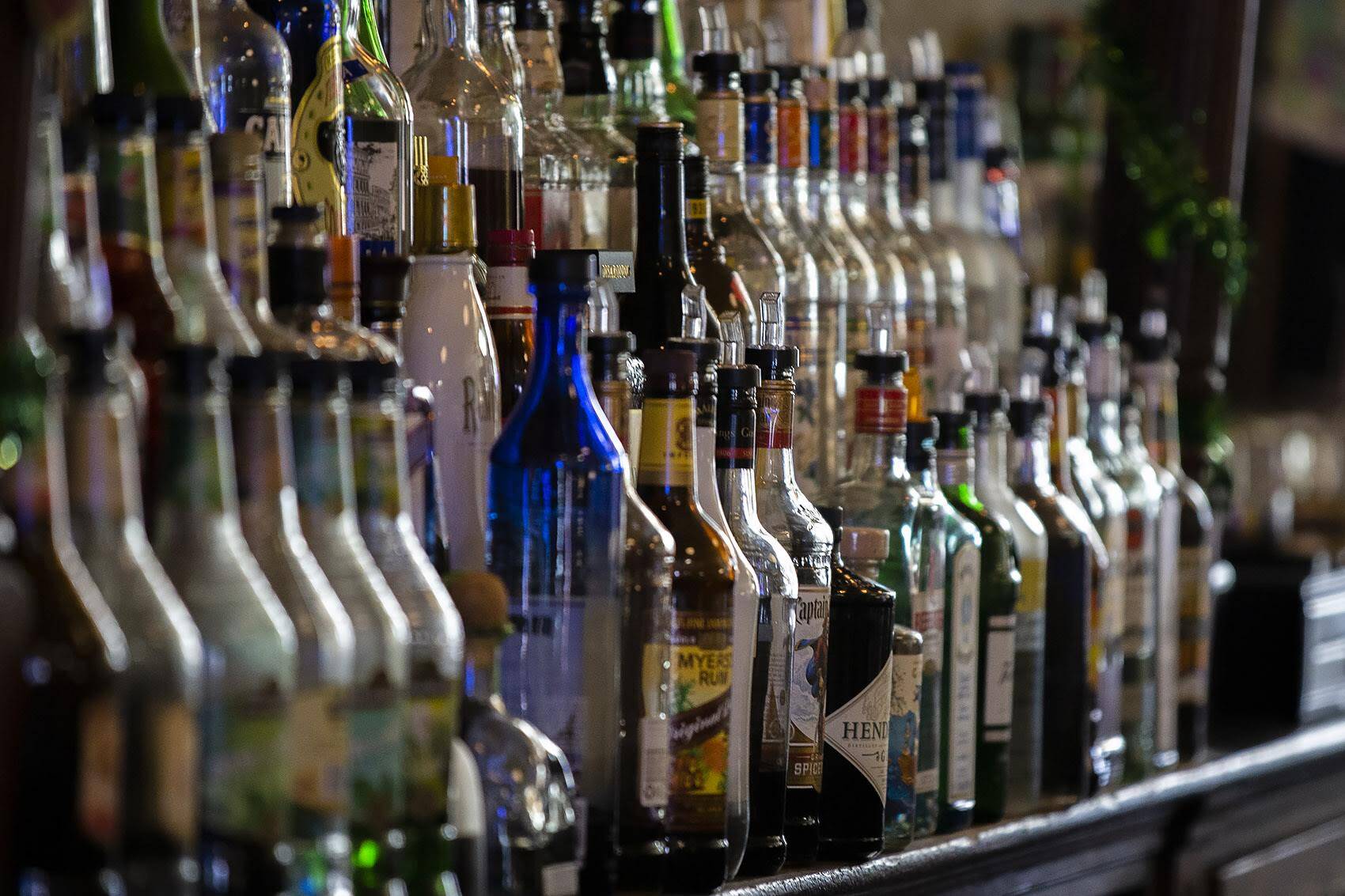Advertisement
Field Guide To Boston
Why we're so weird about alcohol in Massachusetts (Hint: It's not really the Puritans' fault)

New Englanders are notorious for our Puritan austerity, and indeed, Boston was settled by Christian fundamentalists who tried to exert their views over people’s personal lives. The legal framework for Puritan social control came to be known as “blue laws,” and they first applied to growing tobacco, kicking off a “whole code of prohibitive laws,” according to a book written at the height of Prohibition: "Ye Olden Blue Laws" by Gustavus Myers.
The blue laws went on to mandate what you could and couldn’t wear (no golden threads, embroideries, or “slashed sleeves,” high fashion in England at the time), and what you couldn’t say regarding the holy gospel — “any professed Christian who denied that the Bible represented the infallible word of God was to be severely punished,” Myers wrote, “up to banishment or even death.”
Peter Drummey, chief historian at the Massachusetts Historical Society, told WBUR that Puritan blue laws weren’t about drinking itself, but about public drinking.
“One of the original blue laws, in fact, was a price control, so you couldn't be charged too much for a drink when you went to a tavern,” Drummey said.
The Puritan blue laws still on the books have to do with working on the Christian Sabbath. In 1629, according to Myers, colonial authorities in Massachusetts ordered that all inhabitants were to cease working on Sundays, starting at midafternoon Saturday, "that they may spend the rest of the day in catechizing and preparation for the Sabbath as the minister shall direct … Corporal punishment was now ordered in every case where fines were not paid.”
Those prohibitions on working on the Sabbath continue today, albeit in very different forms.
The Puritans established these laws to make sure you went to church, but these days limitations on Sunday activities have to do with workers’ rights to rest. Many people enjoyed the reprieve from economic activity on Sundays, and resisted the push to begin peeling them back.
Take this line from the Bay State Banner in 1977: “Sunday has [been] the day for a drive in the country, a visit to friends or relatives, a picnic or an outing to the beach. There was always something special … Will the peaceful mood of Sunday be lost with the repeal of the Blue Laws?”
The blue laws are still on the books, but there are a number of exemptions. Retail business is allowed on Sundays while non-retail business is not. Even among non-retail businesses, there are 55 exemptions to the Sunday work prohibition, including the trade of yours truly (radio, TV, newspapers, photography, etc.), as well as businesses run by people who observe the Sabbath on Saturday.
The blue laws also prohibit working in retail on holidays including Thanksgiving and Christmas, though fortunately for us, hospitals can be open any day of the year, as can gas stations and other essential businesses.
Advertisement
Until 2023, many who worked on those days were owed time-and-a-half pay for the hours worked on Sunday, a law that ended when the state’s minimum wage reached $15 this year.
By now, you’ll have noticed that we’re talking about all these literally Puritanical laws, but haven’t discussed alcohol yet. It turns out, the Puritans never banned the sale of alcohol, per se; they just prevented businesses from opening on the Sabbath — including booze sellers.
When I was coming of age, alcohol wasn’t sold in Massachusetts on Sundays — many a trip over many a year was made to the gas stations of New Hampshire to buy beer. (A more recent irony of the “live free or die” state is that it still prohibits recreational pot, which is legal in the Bay State.)
When Massachusetts finally allowed Sunday retail sales to take place, in 1983, they left the ban on alcohol sales intact. That ban finally was lifted in 2004.
That clears up Sundays and booze, but newcomers to the state are still often bewildered by a bunch of other rules around selling alcohol, like why some places can sell beer and wine but not liquor. If that describes you, join the club.
Massachusetts allows cities and towns to decide how to slice and dice their liquor licenses, according to Rob Mellion, head of the Massachusetts Package Stores Association. So if a town has 33 licenses, say, 20 of them might allow the sale of all three in single stores, while 13 of the licenses limit stores to beer and wine.
Once you get your head around all of that, there’s some good news: Retailers can sell alcohol 363 days a year from 8 a.m. to 11 p.m. Monday through Saturday, and on Sundays from 10 a.m. to 11 p.m. You’ll have to plan ahead if you want some hooch on Thanksgiving or Christmas.
Bars and restaurants can serve from 11 in the morning to 11 at night. However, local officials can extend closing hours to as late as 2 a.m., but no later.
And it’s true: Happy hour is banned in Massachusetts.
Part of the reason is related to a tragic death that took place in Braintree in 1983. It involved a young woman who drank way too much after winning free alcohol during a “name that tune” contest. After leaving the bar, she drove off, proceeding to drag her friend under the car to her untimely death.
The happy hour statute limits promotional activities at places that serve booze: no free or reduced price drinks, no “all-you-can-drink” periods (except at private functions), no games or contests with alcohol for a prize, no getting served more than two drinks at a time.
There’s been chatter over the years about bringing happy hours back, but many bar owners are against the idea, according to Rob Mellion.
“They fear liability associated with it,” Mellion said, “and in order to do so, their insurance rates would go through the roof.”
